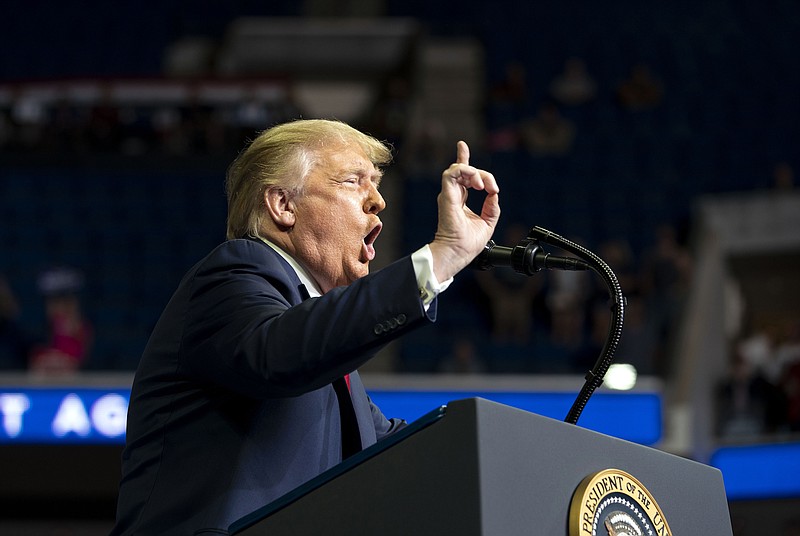If there's anything we've learned in the five years since Donald Trump came down that escalator, it's that he cannot thrive without a constant stream of attention, adulation and affirmation. It's why he's obsessed with cable news and Fox in particular; why his Cabinet meetings begin with almost worshipful praise from each of his appointees; and why he's constantly touting his sky-high support from other Republicans.
He's constructed a bubble, let's call it a safe space, in which he's insulated from bad news, negative feedback and pretty much any kind of criticism. The result is that he's unable to respond to a changing national mood, unable to adjust to a public that wants more leadership than spectacle.
On the question of his campaign, the president's re-election staff knows just what he wants to hear. They've either downplayed his poor numbers - telling him that the polls showing Joe Biden ahead skew Democratic - or challenged them outright. After a CNN poll found him trailing Biden by 14 points, the Trump campaign sent a cease-and-desist letter to Jeff Zucker, the president of the network, demanding that he retract the poll and apologize for its release. The poll, read the letter, is a "stunt" meant to "cause voter suppression, stifle momentum and enthusiasm for the president, and present a false view generally of the actual support across America for the president."
The obvious problem with building a cocoon of praise and sycophancy around oneself, as any failed authoritarian could explain, is that it hinders one's ability to respond to conditions on the ground, whether that's a pandemic or a presidential race. You can't change course if you refuse to see what's happening in front of you.
Trump rejects his poor ratings on the pandemic and the protests - 58% of Americans disapprove of his handling of the coronavirus, and 60% disapprove of his handling of the demonstrations to protest the death of George Floyd - and so he continues to do the things that have placed him in a historically weak position for an incumbent president seeking reelection.
If Trump were less cloistered, he might know that to improve his prospects he has to speak to voters on the fence between him and Biden. He has to address their fears and make a positive case for his administration. But because he lives within the confines of a gated MAGA community, Trump has no sense of what the skeptical public wants to hear.
And it's not just Trump who is closed off from the rest of the world. Republican officials across the country refuse to believe that the president is on the path to defeat. "The more bad things happen in the country, it just solidifies support for Trump," one North Carolina Republican Party county chairman told Politico in a story on the belief, within Republican circles, that "coronavirus is on its way out" and "polls are unreliable."
We can't predict what will happen in November. But right now Trump is losing the presidential race, Democrats are likely to hold the House of Representatives, and Republicans are at risk of losing the Senate. A backlash is brewing, and Trump can't see or even sense it. There are those in his camp, like Mitch McConnell, the Republican majority leader of the Senate, who can see the writing on the wall. This is presumably why he's pushing a police reform bill - to give Republicans something to tout in the fall to those moderate voters who sympathize with protesters.
But it's not clear if the conservative movement as a whole knows what it has unleashed by hitching its wagon to Donald Trump. They thought they were getting "252 beautiful, brand-new, conservative, wonderful judges" and a chance to cement their political preferences into the constitutional order. What they may receive instead is a newly-energized and increasingly liberal public that has the numbers to sink that project for at least the near-future, if not much longer.
The New York Times
